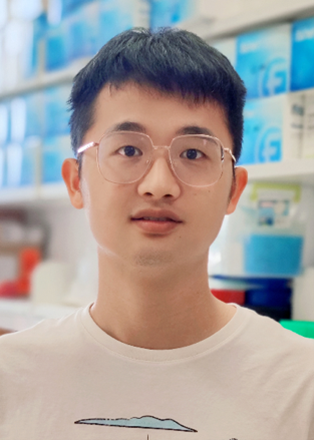Events
Nov 24, 2025
Seminar by Dr. Jia Huang; Talk title: Interspecies chimerism and forebrain regeneration
School of Biomedical Sciences cordially invites you to join the following seminar:
Speaker: Dr. Jia Huang, Assistant Professor, Institute of Modern Biology, Nanjing University
Talk Title: Interspecies chimerism and forebrain regeneration
Date: 24 November 2025 (Monday)
Time: 4:00 pm – 5:00 pm
Venue: Lecture Theatre 1, G/F, William M.W. Mong Block, 21 Sassoon Road
Host: Professor Rio Sugimura
Biography

Jia Huang, Ph.D., is an assistant professor at the Institute of Modern Biology, Nanjing University. He applies his background in gene editing to the study of interspecies chimeric models. Dr. Huang's research includes generating functional rat forebrain tissues in mice, overcoming xenogeneic barriers in interspecies chimerism, and exploring the generation of wild animal organs in model organisms. He has developed a new gene screening platform that has simplified and enhanced the efficiency of blastocyst complementation and has identified autonomous and non-autonomous effects in neural development. Dr. Huang earned his Ph.D. at the Chinese Academy of Sciences, where he led research on minimizing Cas13's collateral effects and its use in metabolic gene regulation. His contributions to the field, including several important papers in journals like Cell and Nature Biotechnology, have helped enhance our knowledge of developmental biology and genetics.
Abstract
Interspecies blastocyst complementation offers a path to study development and generate organs, yet xenogeneic barriers—mismatched developmental timing, adhesion differences, and cell-cell competition—limit human cell contribution. We previously optimized IBC using C-CRISPR to rapidly screen host genes, enabling rat forebrain formation in mice and revealing declining chimerism during mid-to-late prenatal stages. In parallel, we developed a dual-fluorescence reporter to quantify CRISPR-Cas13 collateral RNA cleavage and engineered >200 variants, identifying high-fidelity Cas13d/Cas13X that retain potent on-target activity with minimal collateral effects in cells and in vivo. Building on these insights, we turned collateral activity into a tool: inducible Cas13 selectively attenuates mouse host-cell proliferation without altering donor cells, reversibly reducing growth while preserving pluripotency. In co-culture and chimeric embryos, host attenuation enhances the competitive fitness and integration of human pluripotent stem cells, both in vitro and in vivo. This strategy reshapes donor–host dynamics and helps overcome xenogeneic barriers, advancing interspecies organogenesis.
ALL ARE WELCOME.

